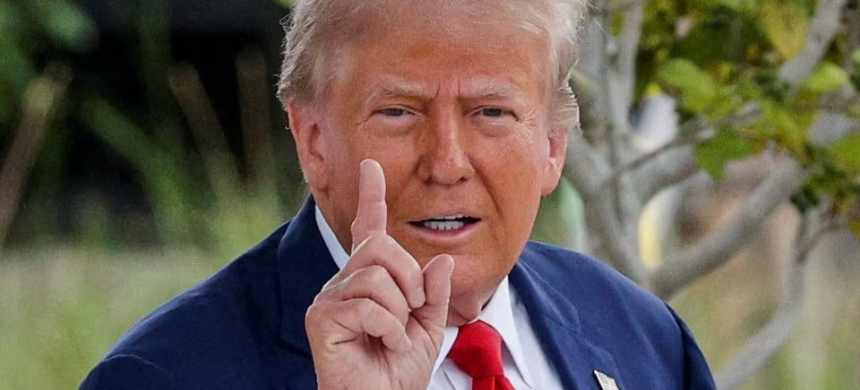Republican presidential candidate Donald Trump launched a combination of personal and policy-based attacks against Democratic rival Kamala Harris during a speech on Wednesday in Asheville, North Carolina. This shift comes as Trump faces increasing pressure, with his lead in opinion polls significantly shrinking.
Some of Trump’s allies, donors, and advisers have voiced concerns about his focus on Harris’s intellect, urging him to concentrate more on critiquing her policy record instead.
In this speech, Trump steered clear of questioning Harris’s racial identity and offered more detailed policy critiques than in recent appearances. However, he still engaged in personal attacks, calling her “stupid” and mocking her laugh as a “cackle,” suggesting it reflected deeper flaws.
READ MORE — Trump Calls on Supporters to Target Meta and Google for Alleged Censorship
Harris, who stepped into the Democratic candidacy after President Joe Biden withdrew from the race last month, has changed the dynamics of the campaign. Polls show Harris closing the gap with Trump, with some even putting her ahead in the lead-up to the November 5 election. This shift has unsettled Trump’s campaign, prompting him to intensify his personal attacks. Some Republicans have also resorted to racist and sexist remarks against Harris.
Several of Trump’s allies believe this approach could harm his campaign. Bill Bean, a prominent Republican donor, stressed the importance of focusing on Harris’s policies rather than personal attacks. He discussed this strategy with JD Vance, Trump’s vice-presidential pick, and Republican National Committee chair Michael Whatley.
Later in his speech, Trump pivoted to Harris’s policy positions and presented his own proposals. He pledged to open federal lands for drilling, streamline pipeline permitting, and lower consumer prices if elected. He promised to cut energy and electricity costs in half within 12 to 18 months of taking office but did not provide specifics on how these goals would be achieved.
Trump criticized Harris for allegedly supporting a fracking ban, arguing that this position could hurt her in Pennsylvania, a key swing state where fracking is widespread. While Harris previously opposed new fossil fuel infrastructure, her campaign now states that she no longer supports a fracking ban.
During his speech, Trump invited financier and informal economic adviser Scott Bessent on stage, praising him as a potential candidate for treasury secretary if he wins in November.
Before Trump’s speech, Harris’s campaign communications director, Michael Tyler, accused Trump of neglecting the middle class, pointing to his opposition to union protections and support for corporate tax cuts.
Harris is scheduled to visit North Carolina on Friday, where she will deliver a speech in Raleigh focused on economic policy, including plans to reduce costs for middle-class families and address corporate price-gouging.
While Trump still holds a slight lead in North Carolina, according to polling averages from Real Clear Politics, Harris is gaining momentum. This represents a significant shift from a month ago when Biden was still the Democratic candidate, and Republicans were targeting traditionally Democratic states like Minnesota and Virginia.










